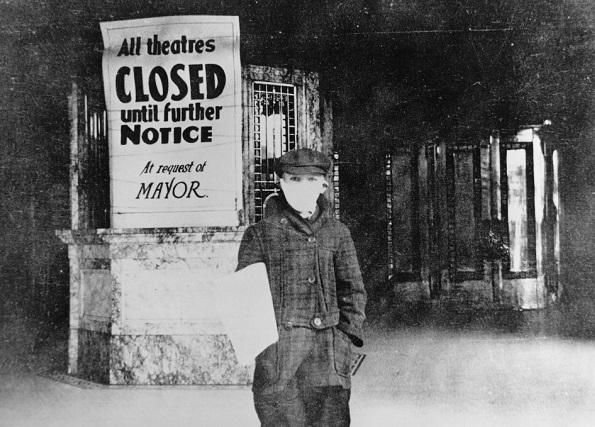Community, Leadership, Experimentation, Diversity, & Education
Pittsburgh Arts, Regional Theatre, New Work, Producing, Copyright, Labor Unions,
New Products, Coping Skills, J-O-Bs...
Theatre industry news, University & School of Drama Announcements, plus occasional course support for
Carnegie Mellon School of Drama Faculty, Staff, Students, and Alumni.
CMU School of Drama
Wednesday, March 25, 2020
Theatre and the Last Pandemic
AMERICAN THEATRE: So far 2020 has not turned out to be the theatre year anyone anticipated. By mid-March theatres across the United States had closed their doors, canceled the remainder of their seasons, and in most cases announced layoffs and furloughs, all thanks to mandates for social distancing to stem the outbreak of the COVID-19 pandemic. Theatre historians writing about the age of the novel coronavirus will recall seasons that never were, shows that never opened, and productions closed mid-run.
Subscribe to:
Post Comments (Atom)

2 comments:
It is certainly worth mentioning and researching about other pandemics that significantly impacted theater as a whole in the US and in the world. That is what makes this article so interesting to read, as the last instance of theaters shutting down because of a disease was in 1918 during the Influenza or Spanish flu epidemic. This epidemic was over 100 years ago and has definitely faded from recent memory as there are not many living people from that era, nor did the epidemic cause great alarm afterwards. In this article, it mentions that it was like a switch was flipped, going from theaters, schools and churches being closed down to everything being normal again in a span of months. The closure of many theaters during 1918 garnered more attention than it does today however, and this is largely due to the fact that theaters were the main source of entertainment during the 1900's. This was before internet, cell phones, and some films. Now, shutdown theaters and actors losing their jobs do not garner a lot of attention in the national news. This isn't to say it is a bad thing, as the wealth of news about the virus is infinitely better than in 1918, but it seems almost like we are neglecting the cultural aspect of our communities, something that people in the 1900's worried about a lot more.
It’s really interesting to see the parallels forming between this current pandemic situation and that of 1918, but it’s even more interesting to do so specifically through the lens of the theatre industry. Side note, my history teachers in high school failed to ever tell me that the Spanish flu didn’t originate in Spain. Anyways, to see that Americans saw a pandemic threat coming their way back then and chose to make excuses or ignore it, blows my mind as to how we have not learned from mistakes and are repeating history now. It’s interesting to read that back then, theatre were grouped in with schools and churches, institutions that people deem essential. But, now, we hear of people complaining that arts institutions are receiving aid money—just, interesting. I find it odd that writers ignored such a big event in history in their writing, but I guess they were trying to forget it, or it got lost in the shuffle of the WW1 shadow. I wonder if the same will happen with writers and artists now. I don’t think it will, since in today’s times people are so aware and vocal, but who knows. It’s so weird to be in the middle of events knowing they’re going to be in the history books someday and in work we may see in the future.
Post a Comment